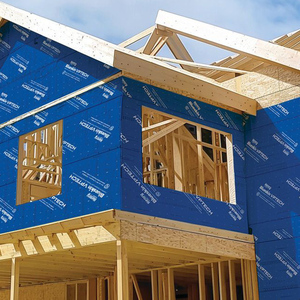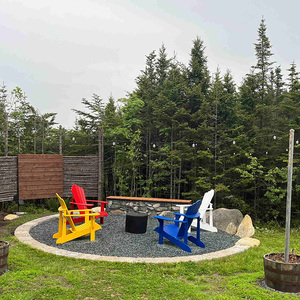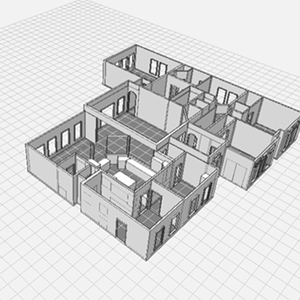Hey all,
I built an addition for my sister on her house (16′ x 30′) and it’s on the main highway here in northern ontario. I have been getting asked to do quite a few jobs by her and her husbands friends and by passersby on the road. I have worked on crews before and this job is a straight cash job (we do the work, charge materials on her account at the lumber yard and bill them for our hours) . As such and never providing quotes before how do i get started?
Any ideas, tips or pointers? I have been thinking about it for a while and am not sure the best way to go about this.
Thank you so much in advance!



















Replies
Well,
you could use the books that provide estimating hours for certain tasks..............
you could "ballpark" it according to what you think would be a fair price............
you certainly could just agree to build it for less than the other guy........
or
you can build the job in your head.
I take it you aren't new to construction and have experience in many different aspects of the job. You know what you need, what you have to do, been there for the good and bad times. You know that being washed out because of rain is one thing, to let the consistant rain wash out your business won't happen. You can follow the codes so you don't have to take it apart and do it again.
Figure the material, know the amount of cast off that you have to account for. Have the tools to do the job or make plans to increase your arsenal so you can complete a task in a timely manner. Know when to rent rather than buy.
Now, figure how long all the construction will take you and your compadres.
So, you have your material, your hours, the "unseen", and the tool procurement all written down. That's it, right?
Nope, there's the cost of doing business. Insurance being a big one. Workers comp if you decide on employees. Vehicle and tools you will need to buy because of breakdown or upgrade. Profit-you'll need to account for that or you're better off working for someone else. You'll do no one any good if you go out of business. And warranty work-the time you don't charge for that is necessary for you to guarantee your work.
That's all, nothing to it. Best of luck.
well i have a pretty good idea about materials and delays...the only tools i dont' have are scaffolding and a larger generator... i have a new truck already and am in quite good with the local labour......the part i am really kind of foggy about is estimating the time to perform a job...i guess the best way is to swim with sharks and hope it doens't cost me toooooo much money.
Be sure to do some sort of worst-case analysis so that you're confident you won't lose more than you can afford to if things go sour somehow.
pink
The time figuring is the art of estimating.
Instead of just figuring what to do, you now have to assign cost to the "doing". How much time-different than how much money. What will it take you to do it? Build the job on paper, much the same way you come up with the material costs.
Insert the cost of doing business and there you have it.
Fudge factor add on.
Submit.
Estimating Jobs
Estimating is an art all by itself. Especially for estimating remodel jobs. As an example--if someone wanted you to build a deck on the front of the house and another wanted a similar deck on the back of their house would there be any difference in cost?
Yes. because of several factors. It will take longer to haul tools and materials to the rear of the house. You may have to pass through a fenced in side yard used as a dog run. Up front you can probably back right into a driveway. In the back you can't unless there is an alley.
There is always trash and debris from the job. Up front you could have a trailer to take debis to the dump. Just toss the scrap in the trailer and remember to charge for the time it takes to drive to the land fill, drive back, and the time it takes to clean the trailer to its beginning condition.
Electicity availability may be a factor. Do you have only a light fixture in back that requires bulb removal and an adapter? Do you need to work from a truck mounted generator?
When you dig post holes where can you put the dirt? Hauling it away is extra. If you use concrete for the deck posts is there a place clean out the residue? Water?
I think you should start with an estimating book and make notes in that book the more jobs you do. I discovered early on that homeowners would use my detailed estimates to hand to a relative to do the project so I charge for all estimates and all design. Homeowners were willing to pay a landscape designer to develop a plan, hire an architect or a structural engineer in addition to an interior design specialist. Why do all that for free?
Caution--never use a dollar per square foot estimate if you expect to be successful. Tyr
thank you everyone for all of your helpful advice. I am going to buy a book about estimating to use as a bit of a baselilne and work towards to learning and mastering the art of estimating. I have a lot to learn about estimating there are things in the posts here that i never thought of.
Here's another unthought of thing...........
paid vacation.
Quotes
Thanks for the info, I too am new to running my own jobs. I was wondering if you have any specific estimate books that you have had success with in the past?
I have a good grasp on pricing out tile and hardwood work but I was just asked to do a quote on a complete basement development. The client asked for a breakdown of all the jobs from framming, plumbing, electrical, flooring and finishing. Im curious as how outside of a per square foot to price out things like framming, drywall....
kbrown
Be wary of the "break it down" type of question from the customer. Many times that's going to lead to "hey, I like your price for the framing and the finish, but I can get the flooring and electric cheaper from someone else.
Fine if your frame and finish covered all the necessary crap that goes with it-such as timing. If you handle (or sub) the whole job it is your schedule that is followed. If you get pc'd out on pricing, then you follow someone else's timetable. This is going to cost you time which is money.
I very seldom competitively bid, my pricing is for the benefit of the client to know how much it is going to cost. I routinely break out the subcontractor price and list it as it's own line-described in job detail. All subs are listed, my part of the job is then given as a total, with the detail of what is going to be done.
My worksheets on figuring the bid has all sorts of detail-time allotted, material list and cost, special notes. These are not offered to the client, but I have it for a record to do a couple things-keeps me lined up on portion of the job's cost and also gives me detail on how to lower a price (by taking out various portions).